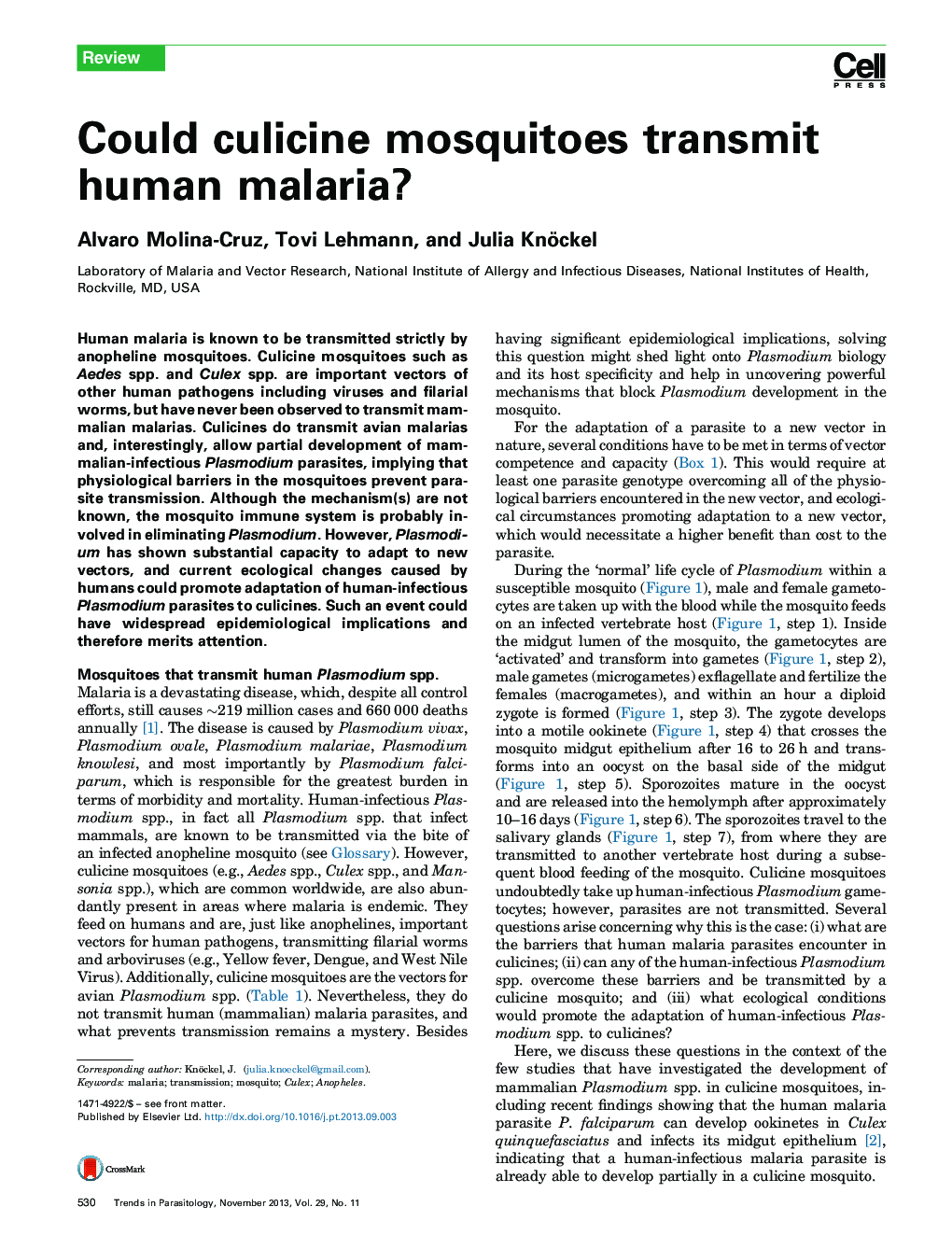| Article ID | Journal | Published Year | Pages | File Type |
|---|---|---|---|---|
| 3423045 | Trends in Parasitology | 2013 | 8 Pages |
•Culicine mosquitoes are exposed to human-infectious Plasmodium spp., but do not transmit it.•Culicines allow partial development of several mammalian Plasmodium spp.•Different Plasmodium spp. encounter diverse barriers that prevent transmission.•The right ecological conditions might promote adaptation for transmission.
Human malaria is known to be transmitted strictly by anopheline mosquitoes. Culicine mosquitoes such as Aedes spp. and Culex spp. are important vectors of other human pathogens including viruses and filarial worms, but have never been observed to transmit mammalian malarias. Culicines do transmit avian malarias and, interestingly, allow partial development of mammalian-infectious Plasmodium parasites, implying that physiological barriers in the mosquitoes prevent parasite transmission. Although the mechanism(s) are not known, the mosquito immune system is probably involved in eliminating Plasmodium. However, Plasmodium has shown substantial capacity to adapt to new vectors, and current ecological changes caused by humans could promote adaptation of human-infectious Plasmodium parasites to culicines. Such an event could have widespread epidemiological implications and therefore merits attention.
